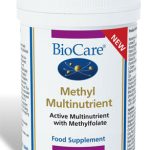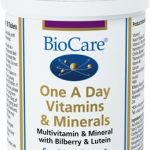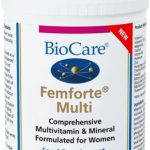If you’re familiar with this website and you’ve taken the time to look through some of the supplement solutions we provide, you’ll have noticed, no doubt, that we only sell organic supplements – that is, products that comprise vitamins and minerals in their naturally-occurring states. We do not and never will advocate the use of synthetic vitamins or the supplements that contain them; certainly not over organic supplements with their natural vitamins.
But, you may ask, why is this? What’s so special about going the organic route? Why are natural vitamins so much better for you than their synthetic counterparts? Well, first of all, perhaps you should consider why it’s so critical we consume a comprehensive and large helping of vitamins on a daily basis; consider what’s so important about vitamins in the first place./span>
Put simply, if our bodies aren’t provided with an adequate amount of vitamins on a consistent basis, they simply don’t function properly. If we’re deficient in the vitamins we need, we can experience problems and even suffer from chronic illnesses – everything from obesity to anorexia; depression and fatigue to organ malfunction. Ideally, we should get all the vitamins and minerals we need from our diets – and our diets ought to contain as natural, organic and healthily vitamin- and nutrient-rich food as possible; the sort our ancestors would have eaten. That is, foods without a synthetic ingredient in them at all. Nowadays, though, owing to our hectic lives, exactly what foods we can regularly buy and modern farming techniques, it’s becoming increasingly difficult to get all the natural vitamins our bodies require from diet alone, so supplements specifically containing organic vitamins – and not synthetic supplements – have to be the answer.
Synthetic vitamins vs natural vitamins
Unlike the natural vitamins in organic supplements then, their synthetic versions are manufactured via the mixing of chemicals with a vitamin; thus, they don’t come directly from a plant-based, natural source but are created in a test tube to more or less mimic natural vitamins. However, because these ‘unnatural’ versions have been isolated to be mixed into a synthetic compound, they don’t – and simply can’t – fully mimic naturally-occurring vitamins because they lack all the features of the latter, including the co-factors and transporters (natural chemicals that ensure the natural vitamin is, following consumption, transported effectively from the digestive system to where it needs to go in the body).
Indeed, according to research validated by the Organic Consumers Association, synthetic vitamins simply can’t be classed alongside naturally-occurring vitamins as the body isn’t able to recognise them and so can’t use them in the same way1. They’re simply not as good for the body. Natural vitamins – because of the way in which they’re consumed (in healthy food or organic supplements) – are delivered to the body alongside other complementary vitamins, minerals and enzymes specifically because, in this format, the vitamins can be recognised, metabolised and absorbed by the body to aid its overall function and health.
Conversely then, it’s too often the case that isolated, synthetic vitamins have to be stored in the body before it obtains – or creates – the nutrients and enzymes necessary to get out any of the goodness these synthetic vitamins contain. Or worse, the body has to rely on its own store of trace minerals for this job; thus diminishing its mineral reserves and perhaps contributing to potential mineral deficiencies.
The dangers of synthetic vitamins
So then, far from doing you good, synthetic vitamins are sometimes liable to do your body harm. A good example to consider is the synthetic version of Vitamin E. The most common naturally-occurring form of this vitamin in Europe is d-alpha tocopheral (found in sunflower oils and olive oils), while its synthetic form is what’s referred to as dl-alpha tocopheral. Not only is this latter less bioavailable and about only half as potent than the former, it’s also created by blending the natural version (the ‘d-form’) with other chemical ingredients (which make up the ‘l-form’). Sure, that may sound rudimentary, yet when you learn that the latter ‘l-form’ has to be separated from the ‘d-form’ once it’s in the body and then excreted via the digestive system, you have to ponder on whether it might harm the body? After all, why else would the body reject it and eject it through excretion?
Additionally, Vitamin E – along with Vitamins A, D and K – is a fat soluble vitamin. Needless to say, this means they’re soluble in fats (lipids), which isn’t a big deal if you consume them naturally through a healthy, balanced diet or via organic supplements, as you won’t consume too high a level of them in one go, preventing them from collecting and building up in the body’s fatty tissues. Consuming synthetic versions of fat soluble vitamins is a different matter, though, because – as they’ve been scientifically-created – they tend to be more concentrated; in other words, you get more bang for your buck. This means the fatty tissues can fill up with them quicker and toxicity becomes a genuine danger.
How to tell the difference?
Unfortunately, knowing for sure whether you’re about to purchase or consume a natural or a synthetic vitamin isn’t always that straightforward. Why? Because too many synthetic vitamin-producing companies like to suggest their creations are more natural than they are – or even like to suggest they’re totally natural. Like it or not, many ‘unnatural’ vitamins tend to be labelled and sold as natural even if they contain as little as 10% of the genuine naturally-occurring form of a vitamin; 90% of them is made up then of synthetic, laboratory-added ingredients.
So, to avoid purchasing a synthetic vitamin by mistake, it’s important to check the product’s label for its ingredients; this should offer tell-tale signs of its ‘artificial’ nature. Ingredients in supplements to steer clear of include:
- Aminobenzoic acid (in para-aminobenzoic acid or PABA)
- Ascorbic acid (in Vitamin C supplements)
- Choline chloride/ choline bitartrate (in choline supplements)
- dl-alpha tocopherol and dl-alpha tocopherol acetate/ succinate (in Vitamin E supplements)
- Cyanocobalamin (in Vitamin B12 supplements)
- Calcium d-pantothenate (in pantothenic acid)
- Irradiated ergosteral/ calciferol (in Vitamin D supplements)
- Magnesium stearate (or stearic acid)
- Monosodium glutamate (used for flavouring)
- Pteroylglutamic acid (in folic acid)
- Retinyl palmitate (in Vitamin A supplements)
- Pyridoxine hydrochloride (in Vitamin B6 supplements)
- Riboflavin (in Vitamin B2 supplements)
- Thiamine mononitrate/ thiamine hydrochloride (in Vitamin B1 supplements)
- Titanium dioxide (it’s carcinogenic!).
Go organic for natural vitamins
As noted above then, should you find your natural vitamin-intake limited through diet alone (because of pre-existing health issues, food availability or modern farming practices), you should turn to organic supplements. And, among the huge number of naturally-derived nutrient-rich supplements available through us at The Finchley Clinic, the following are highly recommended for their multivitamin composition:
Methyl Multinutrient – a superior, powerful multivitamin, mineral and antioxidant complex, this supplement’s designed to provide many nutrients in their metabolically active, bioavailable forms.
One-a-Day Multivitamin & Minerals – a potent multinutrient product, providing a broad range of natural nutrients in readily absorbable forms (including Vitamins A, B1, B2, B3, B5, B6, B12, C, D2 and many more).
FemForte Multi – specifically suited to the nutrient requirements of women, this supplement comprises high ratios of female health-enriching vitamins and minerals; the likes of Vitamins E, B6 and B5, as well as magnesium, zinc and green tea.
Reference:
Clement B. ‘Nutri-Con: The Truth About Vitamins & Supplements’ (‘The Vitamin Myth Exposed’). Organic Consumers Association. https://www.organicconsumers.org/news/nutri-con-truth-about-vitamins-supplements. December 2006.



